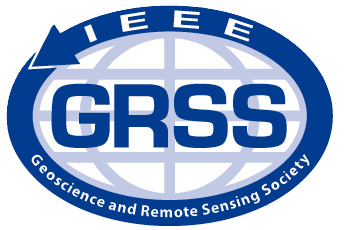Advanced methods for remote sensing information extraction

Online Fall school
3-5 November 2020
The new developments in remote sensing technologies are moving towards smaller, specialized satellite systems, constellations involving many platforms, and exploitation of multi-sensor (multi-modal) observations. Together with the ever-increasing capabilities for higher spatial, spectral, temporal, and radiometric resolution, this results in an explosive growth in the amount of RS data available for Earth science applications. The proliferation of RS data also increases the complexity of these data, like larger diversity and higher dimensionality.
This development goes hand in hand with the rise of new, innovative signal processing methodologies to take advantage of the new monitoring capabilities and opportunities.
The school on “Advanced methods for remote sensing information extraction” aims at introducing the attendee to advanced signal processing methods for information retrieval in large scale datasets collected by multiple remote sensors. To achieve this, the school will bring together leading researchers from academic institutions, data providers, and industry end-users.
This event that will be held online in Fall-Winter 2020, is jointly organized by Norway, and Spain Chapters, within the framework of the ChapNet IEEE-GRSS initiative.
November 3rd
9.15 — 9.30 (CET)
Opening remarks
Message from Paolo Gamba, GRSS IEEE President
9.30 — 12.30 (CET)
Antonio Plaza, Univ. of Extremadura, Caceres, Spain
14.00 — 17.00 (CET)
Carlos Lopez Martinez, Universitat Politècnica de Catalunya-BarcelonaTech UPC, Barcelona, Spain
November 4th
9.30 — 12.30 (CET)
Avik Bhattacharya, IIT Bombay, Mumbai, India
14.00 — 17.00 (CET)
Alejandro Frery, Victoria Univ. of Wellington, New Zealand
November 5th
10.00 — 12.15 (CET)
Maria Piles, Univ. of Valencia, Valencia, Spain
14.00 — 15.00 (CET)
Panel Debate: Artificial Intelligence and remote sensing: needs and goals
Klas Pettersen, CEO of NORA;
Paolo Gamba, Univ. of Pavia, Italy – IEEE GRSS President;
Maria Piles, Univ. of Valencia, Spain – Chair of IEEE GRSS Spain chapter;
Ronny Hänsch, DLR, Germany – co-chair of the IEEE GRSS Technical Committee on Image Analysis and Data Fusion (IADF).
15.00 — 17.00 (CET)
Andrea Marinoni, UiT the Arctic University of Norway, Tromsø, Norway
The registration is now closed!
Many thanks for registering for AMERSIE 2020.
To hold the school safely and responsibly, the organizing committee decided that the school will be virtual. The lectures will be offered via Zoom at their indicated time. The links for the different sessions will be communicated by email one week prior to the school.
Organizing GRSS chapters
- Norway chapter of IEEE GRSS
- Spain chapter of IEEE GRSS
Organizing committee
- Andrea Marinoni, UiT the Arctic University of Norway, Tromsø, Norway
- Maria Piles, University of Valencia, Valencia, Spain
- Saloua Chlaily, UiT the Arctic University of Norway, Tromsø, Norway


